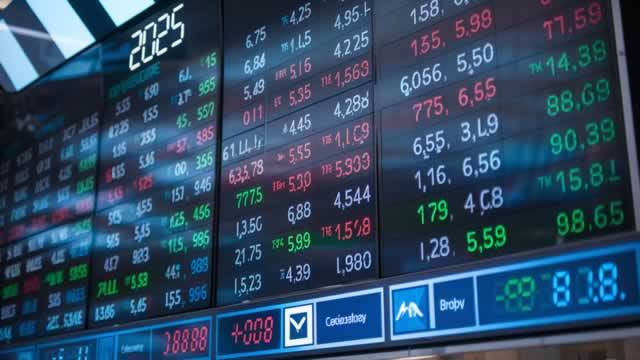Insights from Qi Wang, UOB Kay Hian’s Chief Investment Officer for Wealth Management, on China’s Economic Focus
In a recent interview, Qi Wang, the Chief Investment Officer for Wealth Management at UOB Kay Hian, shared his perspective on the Chinese government’s economic priorities. Wang’s professional experience and intense focus on profit-making make his insights valuable for individuals seeking to understand the current economic climate in China.
China’s Domestic Economic Focus
According to Wang, the Chinese government’s primary focus remains on the domestic economy. This strategy is a response to the ongoing global economic uncertainty and geopolitical tensions. By focusing on domestic growth, China aims to reduce its dependence on external markets and foster self-sufficiency.
Implications for Individuals
For individuals, China’s domestic economic focus could translate into opportunities in sectors that are less sensitive to global market conditions. These sectors may include domestic consumer goods, healthcare, and technology, among others.
- Consumer goods: With a growing middle class and increasing disposable income, the demand for consumer goods in China is on the rise. Companies that cater to domestic consumers could see significant growth.
- Healthcare: China’s aging population and increasing healthcare expenditures present opportunities for companies that provide healthcare services and products.
- Technology: China’s technological advancements and government support for the industry make it an attractive market for investors.
Implications for the World
On a global scale, China’s domestic economic focus could lead to a shift in the balance of power in international trade. As China becomes less dependent on external markets, it may reduce its reliance on other countries for resources and raw materials.
- Trade: The reduced emphasis on exports could lead to a decrease in global trade, potentially affecting countries that heavily rely on Chinese imports and exports.
- Resources: China’s focus on self-sufficiency could result in increased demand for domestic resources, potentially affecting global resource markets.
- Political implications: China’s economic self-sufficiency could lead to increased assertiveness on the global stage, potentially impacting geopolitical dynamics.
Conclusion
In conclusion, Qi Wang’s insights on China’s economic focus provide valuable context for individuals seeking to understand the current economic climate in China. By focusing on the domestic economy, China aims to reduce its dependence on external markets and foster self-sufficiency. This strategy could lead to opportunities in sectors that are less sensitive to global market conditions, as well as potential shifts in international trade and geopolitical dynamics.
As individuals, it is essential to stay informed about economic trends and adjust investment strategies accordingly. By focusing on sectors that are less impacted by global market conditions, investors may be able to mitigate risks and capitalize on opportunities in an uncertain economic climate.





